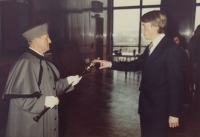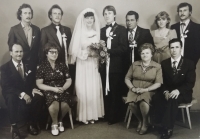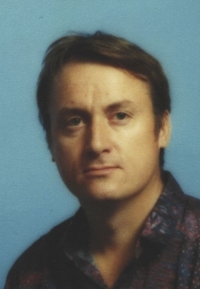The expulsion of Germans after the war remains a delicate topic in South Moravia to this day

Download image
Karel Válka was born on June 20, 1959 in Hustopeče to a German mother, Anděla Válková, née Fialová, and a Czech father, František Válka. After finishing primary school, he attended a vocational school of horticulture in Lednice and then the University of Agriculture in Brno. Already during his studies, he decided to focus on horticulture and wine-growing, following a long tradition in his family. Under the communist regime, he worked as a technician and agricultural chemist in a Unified Agricultural Cooperative. After the Velvet Revolution, he switched between several jobs – he did manual work on vineyards in Austria, for some time he was the head of the Trade Office and from 1996 to 2003 he was employed at the Secondary School of Horticulture in Rajhrad as a teacher and as the Deputy Director for Vocational Training. In 2003, he and his wife decided to fully devote their time to working on their wine-growing business, which they founded in 1991. Today, they sustainably cultivate 20 hectares of vineyards and orchards in the vicinity of Nosislav and Židlochovice, and produce high quality organic wines. Karel Válka has lived in South Moravia his whole life – he spent his childhood in Starovice, his youth in Velké Němčice, the first years after his marriage in Boleradice, until he finally settled down with his family in Nosislav, where he still lived in 2023.














